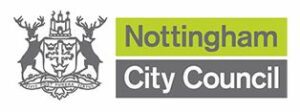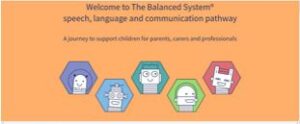Our SENDCO is Shakira Ley and can be contacted on admin@nurseryschool.nottingham.sch.uk. If you have any concerns about your child’s development or your child has any special educational needs or disabilities that you wish to discuss please do get in touch.
We are an inclusive nursery and aim to support all children to enable them to make the best possible progress and achieve well. By working with families and other professionals, we make sure that additional needs are identified early to give children the very best start in life.
A child or young person has special educational needs and disabilities if they have a learning difficulty and/or a disability that means they need special health and education support, we shorten this to SEND.
The Special Educational Needs and Disability Code of Practice (0-25 years) 2015 states that: “A child or young person has SEND if they have a learning difficulty or disability which calls for special educational provision to be made….” A child of compulsory school age, which we apply, has a learning difficulty or disability if he or she:
- Has a significantly greater difficulty in learning than the majority of the others of the same age; or
- Has a disability which prevents or hinders him or her from making use of educational facilities of a kind generally provided for others of the same age in mainstream schools.
The Equality Act, 2010, defines disability as ” a physical or mental impairment that has a ‘substantial’ and ‘long-term’ negative effect on your ability to do normal daily activities.”
Who are the best people to talk to in this setting if I am concerned about my child’s progress?
- The first point of contact would be your child’s key worker or room leader. Please approach them at any time if you have any worries about your child.
- You can also talk to the Co Head Teachers, Joy Buttress and Lorna Dermody or Shakira Ley, special needs co-ordinator, (SENCO).
- The key worker or room leader may talk to you informally or arrange a meeting with you to discuss concerns that are identified. In addition to this, mid year parent meetings, two year old progress check meetings and end of year reports share your child’s learning and development.
Who are the other professionals providing services to children with SEND?
- Community Paediatricians
- Health Visitors
- Physiotherapy
- Speech and Language Therapy
- Occupational Therapy
- Children’s Mental Health Teams
- Educational Psychology Team
What are the different types of support and learning interventions available for children with SEND?
Each child at nursery is provided with:
- The very best learning through play opportunities, provocations and direct instruction that we can offer every day.
- High expectations for each child.
- A named key worker.
- An individualised approach and/or additional support if required for a child who is not making developmental progress alongside their peers.
- Interventions through small group work and/or 1-1 working.
- Adjustment of the environment as required.
- Use of visual strategies such as visual timetables and Makaton.
- Preparations for changes in routines and transition between rooms/ settings.
- Reducing complex language, especially when giving instructions to children.
- Implementation of therapy programmes e.g. Speech and Language, Physiotherapy.
- Opportunities for repetition and reinforcement of developing skills.
- Adapting materials and equipment .e.g. providing tactile equipment and sensory experiences. We have a sensory room to support this.
- Physical difficulties support with self-help skills and safe movement around the nursery.
- Support with behaviour, starting with a clear set of expectations.
Specific Individual support for your child would mean:
- Individual targets or a plan for learning and development.
- Regular progress reviews with the team that supports them.
- Potential for further funding for 1:1 support or interventions.
- Investigation of needs long term including if an Education, Health and Care plan would be appropriate.
- Transition support to primary, including additional visits and meetings between both settings’ SENCOs.
How does additional funding work?
At our setting we receive funding for funded 2 year olds and all 3 and 4 year olds. However, we are able to apply for funding if any child has different and additional to normal requirements. The team who are supporting the child will make this application and the Early Years Special Educational Needs Panel at the Local Authority will decide the allocation of funding. The use of any additional funding is reported to governors.
Click the icon opposite to go directly to the Early Years Equality and Inclusion website. From here, you will be able to find more advice and support available and the local offer from Nottingham City.
Click on the picture for the speech language and communication, (SLC), pathway. This tool navigates provisions / resources available for parents, carers and professionals to help children develop their SLC skills. You can follow a series of questions leading to relevant information, targeted at the 0-5 year age range.




